Tags
abolition, Abolition Bill, armorial, bookplate, British Empire, British Parliament, De La Cherois Crommelin, endpaper, gilt, House of Lords, letter, morocco, pamphlet, planters, printing press, religious, slave trade, slavery, slaves, The University of Utah, Thomas Clarkson, tree calf, West Indian, William Wilberforce
A LETTER ON THE ABOLITION OF THE SLAVE TRADE…
William Wilberforce (1759-1833)
London: Printed by Luke Hansard & Sons for T. Cadell and W. Davis, 1807
First edition
“Old concessions are retracted; exploded errors are revived; and we find we have the greater part of our work to do over again.”
William Wilberforce and Thomas Clarkson (1760-1846) began their mutual battle against the British Parliament toward the abolition of slavery in 1787. In 1791, they were defeated by the interests of West Indian planters. In 1806, Wilberforce and Clarkson began the fight again. In A Letter, Wilberforce described the evidence and arguments against the slave trade that he had accumulated over the course of two decades. It was published on January 31, 1807. On 25 March 1807 royal assent was given to a bill abolishing slave trade with the introduction of the Abolition Bill in the House of Lords. It was the first major victory for the abolition movement. The bill was carried by 267 votes. According to an account by Clarkson, the house rose to its feet and cheered. The victory represented a battle carried on through word of mouth and the printing press. But the war to abolish slavery was far from over. Wilberforce continued to work to abolish slavery throughout the British Empire. The fight did not conclude until July 26, 1833, when Parliament voted to abolish slavery. Wilberforce died three days later. University of Utah copy has armorial bookplate of “Sam. De La Cherois Crommelin” and family signature on endpaper. Bound in contemporary tree calf, gilt flat spine with black morocco label.

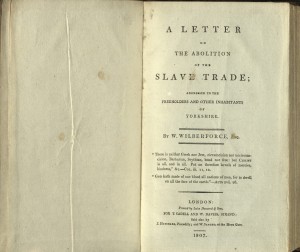

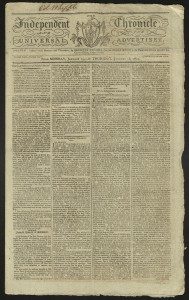
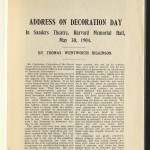
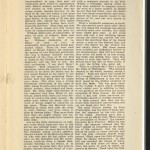
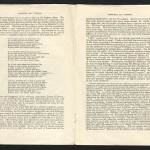
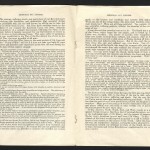
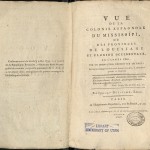
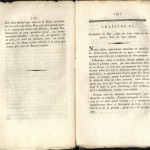
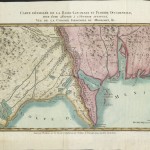
You must be logged in to post a comment.